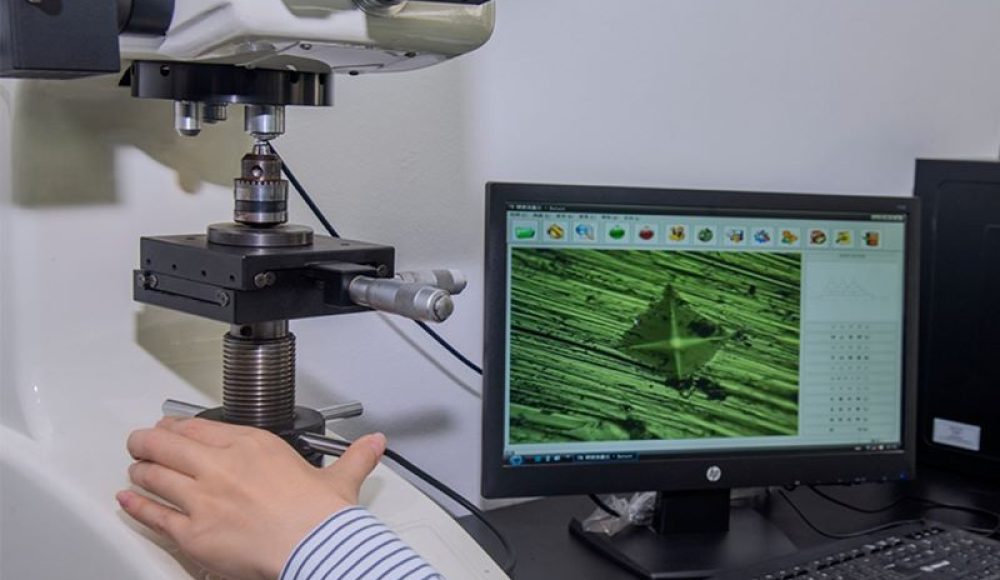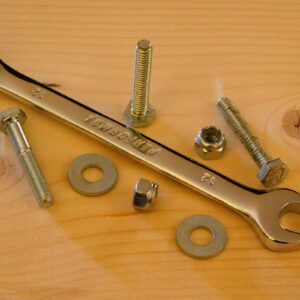
Dans la technologie médicale moderne et l'électronique de précision, les micro-composants exigent les plus hauts standards de fiabilité et de sécurité. Parmi ceux-ci, micro-vis anti magnétique sont devenus indispensables. Ces vis assurent la stabilité de l'appareil, éviter les interférences électromagnétiques, et maintenir l’intégrité opérationnelle dans les environnements sensibles.
Équipement de santé, instruments chirurgicaux, et les appareils électroniques de haute précision reposent tous sur des fixations qui résistent aux champs magnétiques. Sans propriétés antimagnétiques, même une attraction magnétique mineure peut perturber les performances de l'appareil, compromettre la sécurité des patients, et provoquer des pannes opérationnelles.
Cet article explore le rôle critique de micro-vis anti magnétique, examiner leur science des matériaux, principes de conception, applications industrielles, et des avantages à long terme.
je. Le rôle croissant des micro-vis dans les appareils modernes
Micro vis, définis par leur petit diamètre et leur filetage de précision, font partie intégrante des assemblages électroniques compacts et des instruments médicaux. La tendance à la miniaturisation de l'électronique et des appareils chirurgicaux augmente la dépendance à l'égard de ces composants.
1. Précision et compacité
Les appareils modernes exigent des solutions peu encombrantes. Les micro-vis assurent une fixation sécurisée dans les assemblages serrés, permettant aux appareils de conserver des facteurs de forme compacts sans sacrifier l'intégrité structurelle.
2. Sélection et performances des matériaux
Le choix des matériaux est crucial. Les microvis antimagnétiques utilisent généralement de l'acier inoxydable austénitique, alliages de titane, ou métaux non ferreux. Ces matériaux minimisent les interférences magnétiques tout en conservant la résistance mécanique. Par conséquent, les appareils maintiennent la précision même dans des environnements avec des champs magnétiques puissants.
3. Intégration avec la fabrication avancée
L’essor de l’électronique de précision et de la robotique médicale a rendu les micro-vis essentielles. Les systèmes d'assemblage automatisés reposent sur des vis aux dimensions constantes et aux caractéristiques antimagnétiques, assurer la répétabilité et la fiabilité dans la production de masse.
II. Comprendre les propriétés antimagnétiques
1. Mécanisme d'interférence magnétique
Une interférence magnétique se produit lorsque des matériaux ferromagnétiques attirent ou repoussent les composants proches., modifier leur fonctionnement. Dans les dispositifs médicaux, cela peut fausser les lectures, interférer avec les systèmes d’imagerie, ou compromettre les circuits de commande électroniques. Les microvis antimagnétiques éliminent ce risque en utilisant des métaux non ferromagnétiques.
2. Normes et tests
Les microvis antimagnétiques sont testées selon les normes ISO et ASTM. Ces tests garantissent que les vis présentent une réponse magnétique négligeable, résister à la démagnétisation, et maintenir l’intégrité mécanique sous contrainte. Des tests réguliers garantissent la sécurité et les performances dans les applications critiques.
3. Stabilité à long terme
La propriété antimagnétique n'est pas seulement une caractéristique à court terme. Les vis sont conçues pour conserver leur nature non magnétique tout au long de leur durée de vie, même sous des contraintes mécaniques et thermiques répétées. Cette longévité est vitale pour les implants chirurgicaux et les instruments de précision aux cycles opérationnels prolongés.
III. Applications dans les dispositifs médicaux
1. Instruments chirurgicaux
Les outils chirurgicaux doivent fonctionner de manière stérile, environnements contrôlés, souvent à proximité de systèmes électroniques sensibles. Les microvis antimagnétiques empêchent les interférences avec les équipements d'imagerie et les bras chirurgicaux robotisés. En maintenant l'intégrité de l'appareil, ils réduisent le risque d'erreurs lors des procédures.
2. Dispositifs implantables
Dispositifs médicaux implantables, comme les stimulateurs cardiaques ou les neurostimulateurs, sont sensibles aux champs magnétiques. L'utilisation de microvis antimagnétiques garantit le fonctionnement fiable des circuits internes des appareils., prévenir les dysfonctionnements potentiellement mortels.
3. Équipement de diagnostic
Outils de diagnostic de haute précision, y compris les appareils IRM et les systèmes d'imagerie à rayons X, fonctionner dans des environnements magnétiques forts. Les vis sans propriétés antimagnétiques risquent d'être attirées par les champs magnétiques, provoquant un désalignement, contrainte mécanique, ou interférence du capteur. Les vis antimagnétiques éliminent ces risques, garantir des résultats de diagnostic précis.
IV. Applications en électronique de précision
1. Electronique grand public
Dans les smartphones, comprimés, et les appareils portables, les microvis antimagnétiques empêchent les interférences avec les capteurs magnétiques, boussoles, et modules de communication sans fil. Cela garantit la précision et les performances de l'appareil.
2. Electronique Industrielle
Contrôleurs industriels, systèmes d'automatisation, et la robotique nécessitent une fixation mécanique précise. Les micro-vis antimagnétiques maintiennent l'intégrité structurelle tout en évitant les interférences avec les circuits sensibles de traitement du signal.
3. Electronique pour l'aérospatiale et la défense
Les applications aérospatiales et de défense exigent la plus haute fiabilité. Les vis antimagnétiques empêchent l'interaction avec l'avionique et les appareils de communication, assurer la sécurité opérationnelle dans des conditions extrêmes.
V. Avantages des microvis antimagnétiques
1. Sécurité améliorée
Dans les environnements médicaux et électroniques, la sécurité est primordiale. Les microvis antimagnétiques empêchent les interférences électromagnétiques involontaires, réduisant le risque de dysfonctionnement ou de blessure de l'appareil.
2. Durabilité et fiabilité
Ces vis résistent à la corrosion et à l'usure tout en conservant leurs propriétés antimagnétiques. La fiabilité à long terme minimise les coûts de maintenance et prolonge la durée de vie de l'appareil.
3. Compatibilité avec les composants sensibles
Les microvis aux caractéristiques antimagnétiques s'intègrent parfaitement aux capteurs sensibles au magnétisme, systèmes d'imagerie, et microélectronique, garantir un fonctionnement cohérent de l’appareil.
4. Avantages de la fabrication de précision
Les vis antimagnétiques sont produites selon des spécifications exactes. Des niveaux de tolérance élevés garantissent un assemblage reproductible dans les lignes automatisées, améliorer l'efficacité de la production et réduire les erreurs.
VI. Considérations relatives aux matériaux et à la conception
1. Métaux non ferreux
Le titane et l'acier inoxydable austénitique sont préférés. Ces métaux allient résistance mécanique et performances antimagnétiques, permettant une fiabilité à long terme.
2. Techniques de micro-filage
Le filetage de précision garantit une application constante du couple. Ceci est essentiel dans les micro-assemblages où un serrage excessif peut endommager des composants fragiles..
3. Traitements de surfaces
Le revêtement de surface ou la passivation améliore la résistance à la corrosion, prolongeant davantage la durée de vie opérationnelle sans affecter les propriétés magnétiques.
Conclusion
Equipages de micros antimagnétiques ne sont plus facultatifs dans les appareils médicaux et électroniques de précision. Ils garantissent l’intégrité opérationnelle, éviter les interférences, et prend en charge la fiabilité des appareils à long terme. En adoptant ces vis, les fabricants protègent les systèmes critiques, améliorer les performances, et répondre à des normes strictes de sécurité et de qualité.
QUE offre une haute qualité, microvis antimagnétiques de précision en vrac. Nos solutions répondent aux exigences strictes du secteur médical, électronique, aérospatial, et secteurs industriels, assurer la cohérence, fiabilité, et la sécurité opérationnelle à long terme.




